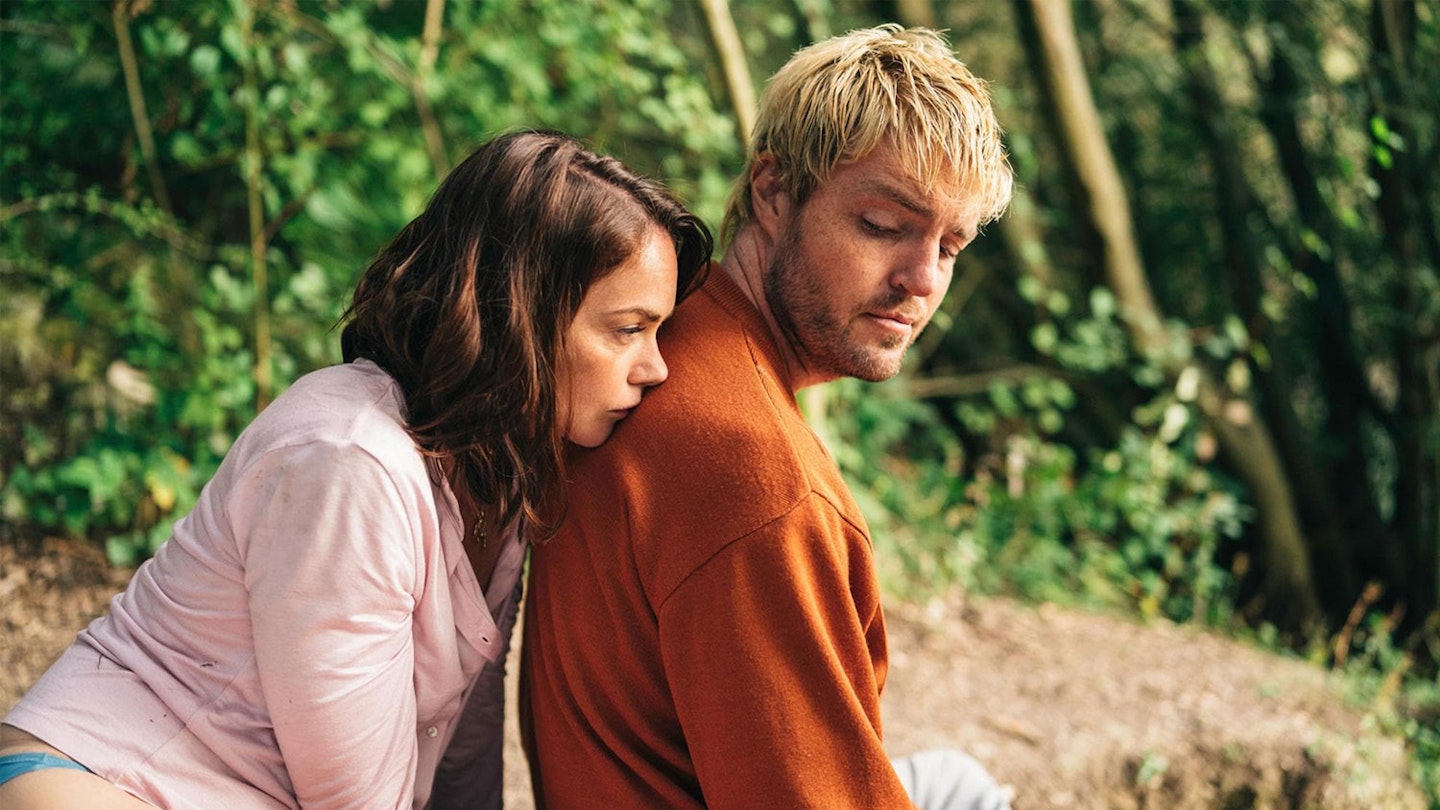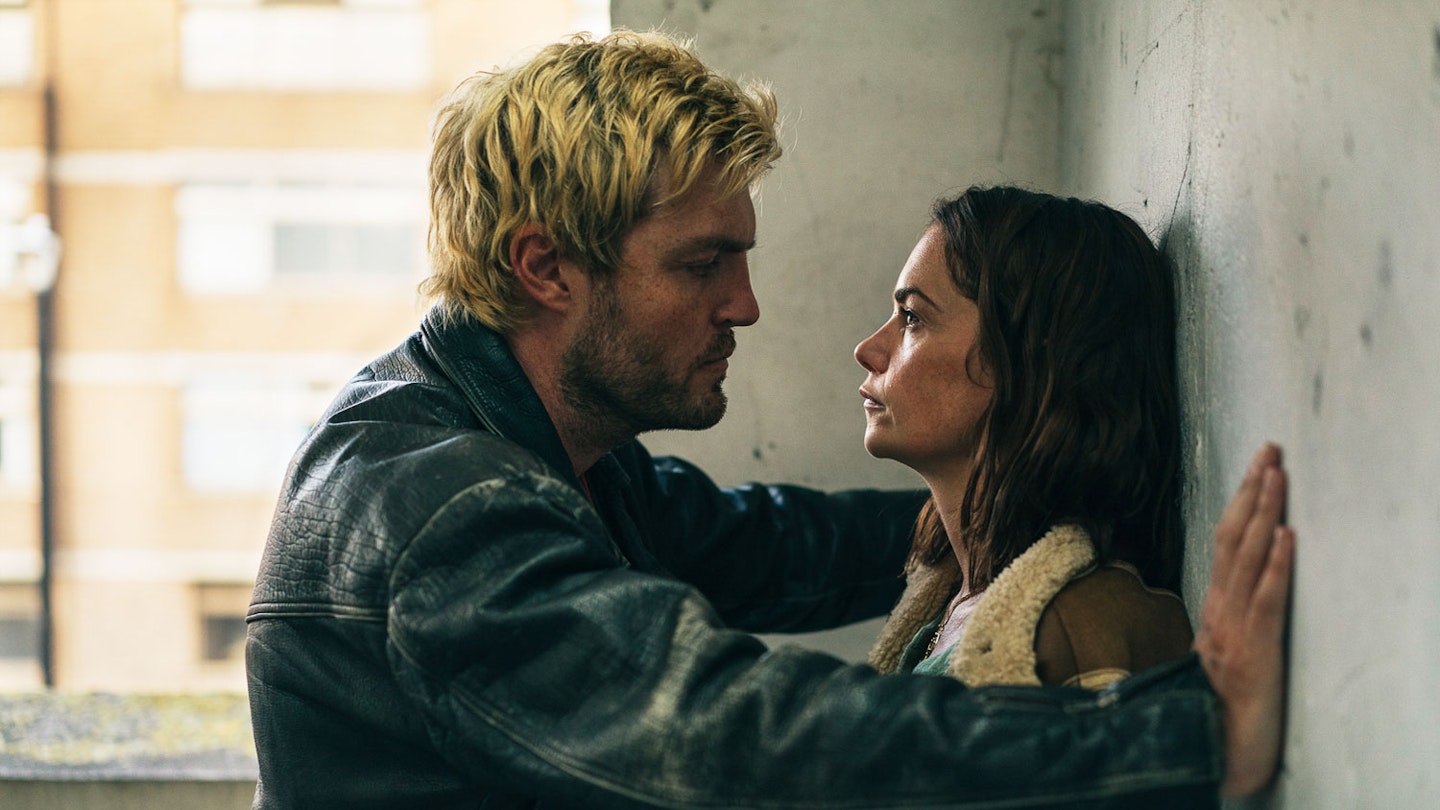True Things tells a sadly familiar tale. Girl meets boy. Boy turns out to be a mendacious bellend. Girl sticks around. Harry Wootliff’s second feature lacks the emotional oomph of her debut, Only You, but delivers an imaginatively shot, well-played, low-energy character-study of a woman struggling to find the things (career, partner, kids) that seem to come so easily to others. Skewering Instagram-style life-idealisation, Wootliff’s non-judgmental film posits the opposite of #relationshipgoals but without having anything really new to say about contemporary gender dynamics.

The union under the microscope is that of Kate (Ruth Wilson) and Blond (Tom Burke). Kate dreams of cunnilingus on a beach, has the domestic skills of Travis Bickle and is often late for work in a Kent benefits office. Blond is four months out of prison, doesn’t care about where his cigarette smoke goes and flings out heavy words (“We’re soulmates”) with casual abandon. This couple don’t meet cute — they meet ugly in Kate’s soul-sapping work cubicle, and get together after a car-park shag, pub lunches and skinny-dipping in a lake. (While Ethan Hawke and Julie Delpy explored Vienna, Paris and Greece, Wilson and Burke get Ramsgate.) Wootliff and Molly Davies’ screenplay filters Kate and Blond’s relationship through a catalogue of modern concerns —gaslighting, micromanipulations, toxic masculinity — but doesn’t really offer a slant or take on the material. It has loads of compelling detail, but its centre feels a little bit hollow.
Burke is rapidly becoming the poster-boy for Bastard Boyfriends.
Away from Blond, Wootliff sketches Kate’s life in broad strokes, from vaguely disappointed parents (Elizabeth Rider, Frank McCusker) to her pas-agg pal Alison (Hayley Squires does her best playing what is less a character, more a cheerleader for societal norms) to Rob (Tom Weston-Jones), a date set up by Alison, whose straight-arrow character (“We’re not having sex in my car. It’s a work car”) seems cackhandedly designed to reveal Kate’s unhinged mindset and rationalise her obsession with Blond.
After The Souvenir and now this, Burke is rapidly becoming the poster-boy for Bastard Boyfriends. Geezerish and badly peroxided, Blond runs hot and cold like a dodgy tap, skilfully flitting between passion and detachment. Wootliff finds striking ways to etch Kate’s worldview, having her literally boxed in by a 1:33 aspect ratio, highlighting her disorientation with Ashley Connor’s woozy visuals of crap seaside pubs, and using Alex Baranowski’s skittering strings to suggest discomfort in her own skin. But some of the writing feels forced: on-the-nose fake-out dream sequences, the device of Kate passing off Blond’s dialogue and thoughts as her own.
Wilson nails Kate’s loneliness and misplaced optimism, but she can’t make Kate’s arc convincing. The movie ends on a sequence set to PJ Harvey’s blistering ‘Rid Of Me’, which delivers a frisson and righteous anger the rest of the film can’t muster.
